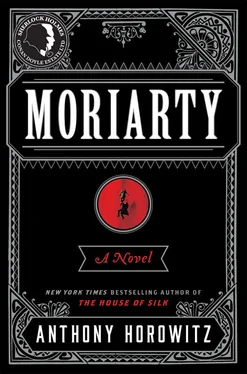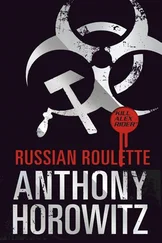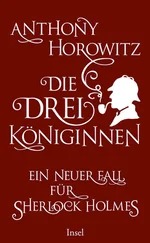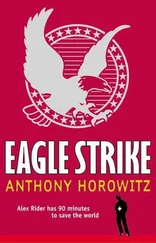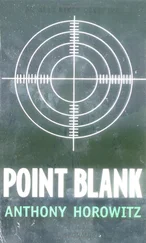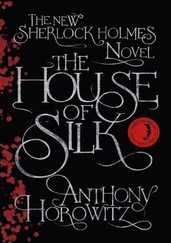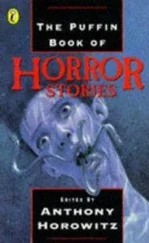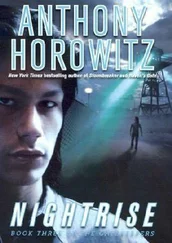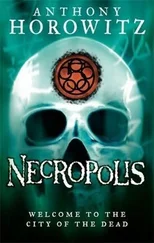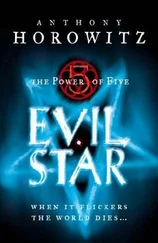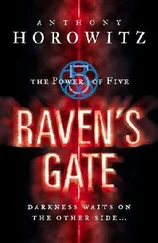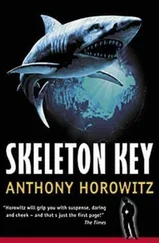I looked round; I could not help myself. Four men stood behind me and they were very close, having made faster progress than either Jones or I could manage. They were making use of the sudden illumination that had been given to them. The train would pass by in less than half a minute and it was only while its light was pinning us down that they could finish us. I saw them running forward, there one second, invisible the next, in this terrible black and white world with the beam finding its way intermittently through the gaps in the brickwork and the fumes threatening to smother us all.
Jones shouted something at me but I no longer heard the words. Four men suddenly became three. Another had thrown himself forward, impossibly, a fountain of blood erupting from his shoulders. The train was almost upon us. And then a figure stepped out from behind a mouldering brick column. It was the boy Perry, his face lit up in a demonic smile and his eyes ablaze. He ran towards me, lifting a huge butcher’s knife in his right hand. I fell back. But I was not his target. One of Mortlake’s men had crept up on me, had been inches away from me. The boy plunged the blade into his throat, jerked it out and thrust it in again. Blood curtained down, splashing onto his arms. He was close enough for me to hear his high-pitched laughter. His mouth was stretched open, showing bright white teeth. The roar of the locomotive filled my ears and I was no longer breathing air, only carbon and steam. My throat was on fire.
Darkness. The train had rushed by, leaving only the carriages clanking past, one after another.
‘Chase!’ It was Jones calling my name. ‘Where are you?’
‘Here!’
‘We must get out of this charnel house.’
The candle was still flickering. We made for it, unsure what we were leaving in our wake. I thought I heard the soft thud of a bullet finding its target, not a revolver but some sort of airgun. And the boy was there too. I heard a scream followed by a terrible gurgle as his blade cut through flesh. Somehow, Jones and I linked arms and, choking, with tears streaming from our eyes, we ran forward, aware that the ground was indeed sloping upwards, and more steeply with every step. We reached the candle and saw that it had been deliberately placed at a corner. Looking round it, we saw the moonlit sky. A flight of metal stairs led to an opening. With the last of our strength, we staggered forward and climbed into the faint light of dawn.
Nobody followed us. We had left the horrors of that subterranean world behind. It was quite possible that Devereux’s men had all perished, but even if some of them had appeared there would have been little they could do for we were now surrounded by other people: butchers and delivery boys, market clerks and inspectors, buyers and sellers, creeping in silence to their work. We saw a policeman and rushed towards him.
‘I am Detective Inspector Athelney Jones of Scotland Yard,’ Jones gasped. ‘I have been the victim of a murderous attack. Call for reinforcements. I must have your protection.’
God knows what we must have looked like, drawn and desperate, bruised and covered in blood, our clothes dishevelled, our skin streaked with dirt and soot. The policeman looked at us with equanimity. ‘Now, now, sir,’ he said. ‘What’s all this about?’
The sky was already turning pink when we made our way back to Camberwell. I had travelled with Jones—I could not return to my hotel until we had seen the conclusion of the night’s work together. We had spoken little but as we reached Denmark Hill, seated together in the carriage that the policeman had eventually been persuaded to provide, he turned to me.
‘You saw him.’
‘You mean Perry, the child who led us to Bladeston House?’
‘Yes. He was there.’
‘He was.’
‘I still do not understand it, Chase…’
‘Nor I, Jones. First he tries to murder you at Scotland Yard. Now it is as if he wished to save you.’
‘He and the man who was with him. But who were they and how did they find us?’ Jones closed his eyes, deep in thought. He was close to exhaustion and would have slept but for the uncertainty of what lay ahead. We only had Devereux’s word that Beatrice had been returned and we had no reason to trust anything he said. ‘You did not tell them about Perry,’ he continued. ‘When Devereux asked you how we found our way to Highgate, you did not say that we had followed the child from the Café Royal.’
‘Why should I have told him the truth?’ I said. ‘It seemed better to leave him uncertain. And it was more important for me to hear him freely admit to the murder of Jonathan Pilgrim. He did so. Of course, we always knew he was responsible, but now we have heard it with our own ears and can testify to it in a court of law.’
‘If we can ever drag him before it.’
‘We will, Jones. After tonight, he cannot be safe anywhere.’
We reached the front door of Jones’s house but we had no need to open it. Seeing our carriage pull up, Elspeth came flying out, her hair loose and a shawl around her shoulders. She fell into her husband’s arms.
‘Where is Beatrice?’ Jones asked.
‘She is upstairs, asleep. I have been worrying myself to death about you.’
‘I am here. We are safe.’
‘But you are hurt. Your poor face! What has happened to you?’
‘It is nothing. We are alive. That is all that matters.’
The three of us went into the house. The fire was blazing and breakfast was already being cooked but I was asleep, in an armchair, long before it was served.
It seemed strange that, in the end, the entire affair—my long and painful search for the greatest criminal who ever came out of America—should come down to the formality of a meeting with three men in a room. We went back to the legation in Victoria Street, this time using our own names and with the full knowledge of the Chief Commissioner. Indeed, permission had been sought as far up as the office of the Foreign Secretary, Lord Salisbury himself. And so we found ourselves sitting in front of the envoy, Robert T. Lincoln, and his councillor, Henry White, both of whom had greeted us on the night of the party. The third man was Charles Isham, Lincoln’s secretary, a rather wayward young man now wearing a mauve jacket and a floppy cravat. It was he who had arrested us at the behest of Edgar and Leland Mortlake.
We were in a room that must surely be used as a library; two entire walls being lined with books, hefty legal tomes which had surely never been read. The walls opposite were painted an anaemic shade of grey, covered with portraits of former envoys, the earliest of them in high collars and stocks. Wire screens had been drawn over the windows, blocking the view into Victoria Street, and I wondered if this might presage a visit from Devereux himself. He had not been there when we arrived, nor had his name yet been mentioned. We were at least certain that he must be somewhere in the building, assuming, that is, that he had returned there after his appearance at Smithfield market. Inspector Jones had positioned police constables around the building, all of them out of uniform. They had been discreetly watching everyone who came and went during the day.
Robert Lincoln I have already described. Large and ungainly though he was, I had found him an impressive person when he had been the host at his reception, graciously acknowledging the many guests who wished to speak to him while ensuring that any conversation took place on his own terms. He was the same now, sitting in a high-backed chair with an antique table beside him. Even in this quieter and more confidential setting, he commanded the room. He did not need to speak. He thought long and hard before he made any pronouncement and his sentences were brief and to the point. White seemed to be the more worried of the three, sitting to one side and examining us with ever watchful eyes. It was he who had begun the conversation.
Читать дальше
